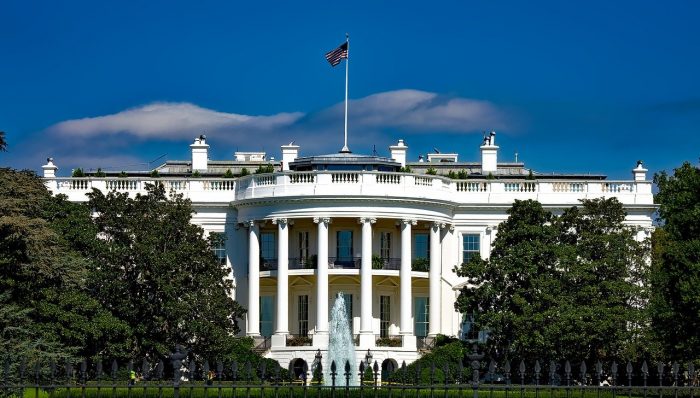DOJ Issues Guidance on Trump Administration’s DEI Policy for Recipients of Federal Funds


The Office of Developmental Programs (ODP) has shared ODPANN 25-072 and its accompanying attachments. The purpose of this announcement is to provide updated guidance for completing the SC Individual Monitoring Tool (IMT), specifically regarding when self-employment is considered Competitive Integrated Employment (CIE).
With the implementation of Performance-Based Contracting (PBC) for ID/A Residential Providers and SCOs, ODP has reviewed how CIE data is collected and interpreted. Because CIE performance measures rely on information collected through the SC IMT, ODP is issuing updated guidance to clarify how SCs should apply CIE criteria — particularly in cases involving self-employment. While PBC is not being implemented for Residential Providers or SCOs enrolled in the AAW, the AAW is also updating its IMT guidance in alignment with the ID/A IMT guidance.
These updates do not change the monitoring tool questions themselves in either the ID/A or AAW IMT. The new guidance provides additional instructions to ensure consistent understanding and documentation.
ATTACHMENTS:
Please review the announcement and attachments for additional information and details.
Message to Supports Coordinators:
The Office of Developmental Programs (ODP) has shared the following information as part of the Annual Review Update process. It is essential to ensure each individual’s demographic information is accurate and current. Please take a few extra moments during your review to verify that all details are up-to-date and correctly documented.
HCSIS Navigation
Completion Guidelines
Please confirm that the following details are correct to the best of your knowledge:
Consumer Demographics
Consumer Addresses
Consumer Contacts
Accurate information not only supports effective service planning and coordination — it also plays a key role in ensuring a smooth transition as we prepare for Enterprise Case Management (ECM) implementation. Thank you for your attention to detail and your continued commitment to delivering high-quality supports.
If you have any questions, please don’t hesitate to contact your ODP Regional Office.
The State Fiscal Year (SFY) 2024/25 Quarter 3 (Q3) report required by the Work Experience for High School Students with Disabilities Act (Act 26 of 2016) is now available. A copy of the report is available here. It can also be found on the Office of Vocational Rehabilitation’s (OVR) Publications web page.
The Office of Developmental Programs (ODP) staff who work with IM4Q and the IM4Q technical advisors have developed a 2-page information fact sheet for providers. The information sheet is meant to be helpful in informing providers about IM4Q and the provider role in IM4Q. Providers may contact the ODP IM4Q/NCI statewide lead or the IM4Q technical advisors for further information or questions.

The Office of Mental Health and Substance Abuse Services (OMHSAS) is pleased to announce the OMHSAS Bulletin Series Update, OMHSAS-25-01, effective May 14, 2025. Obsoleted bulletin lists are updated every few years. This listing identifies bulletins that are no longer in effect. Providers should no longer be referring to them for guidance.
Contact RCPA Policy Associate Emma Sharp with any questions.
The Office of Children, Youth and Families (OCYF) has released Policy Clarification #3490-25-03, which provides guidance on how to address concerns involving privately run camps that do not allege “child abuse” committed by a “perpetrator,” as defined by the Child Protective Services Law (23, PA C.S., Chapter 63). View Policy Clarification #3490-25-03 here. Questions regarding this Policy Clarification may be directed to your applicable OCYF Regional Office, or to Erik Walters, Human Services Analyst in OCYF’s Bureau of Policy, Programs and Operations.
Contact RCPA Policy Associate Emma Sharp with any questions.
Due to the PA Office of Vocational Rehabilitation (OVR) Order of Selection (OOS) operations memorandum, effective April 1, 2025, the Office of Long-Term Living (OLTL) is providing guidance to the following entities regarding the referral of participants to OVR:
OVR recognizes three (3) disability categories:
The April 1, 2025, OOS is a wait-listing of customers who fall within the NSD and SD categories. Customers who are determined by OVR to fall within the MSD category will continue to receive OVR-funded services. Due to this being a partial OOS closure, OLTL participants who are requesting employment services/supports must continue to be referred to OVR for determination of eligibility.
Page three of the OLTL Employment and Employment Related Services Bulletin indicates that during a full OOS closure, “a participant who has not been referred to OVR may receive OLTL Home and Community-Based Services (HCBS) employment services without a referral to OVR.”
Due to the current OOS being a partial closure and not a full closure, participants still need to be referred to OVR for evaluation of eligibility for services. As detailed in the 1915 (c) waiver and page two of the Employment Services Bulletin, participants do not need to be referred to OVR for Benefits Counseling Services.
MCOs and SCs should continue to monitor cases referred to OVR as detailed on page three of the Employment Services Bulletin, which states, “Prior to adding one of the OLTL HCBS employment services to a participant’s Person-Centered Services Plan (PCSP), the SC must determine the status of the participant’s case with OVR.” Additionally, SCs should continue to follow the guidance on page two of the Employment Services Bulletin, which states, “If OVR has not made an eligibility determination within 120 days of a referral being sent, then OVR services are considered to not be available to the participant, and OLTL employment services may be provided under an OLTL HCBS program.”
Please refer any questions to Randall Loss electronically.
The Office of Developmental Programs (ODP) has shared ODPANN 25-039. This communication provides guidance to all stakeholders who participate in the Fiscal Year (FY) 2025/26 renewal Individual Support Plan (ISP) process. The following topical areas are addressed in this communication:
Please view the announcement for additional information and details.

RCPA provided some late updates yesterday on the Federal funding freeze, and late last evening, the National Council for Mental Wellbeing provided members a legal interpretation on the rescinding of the Office of Management and Budget (OMB) M-25-13 and the issuance of the new memorandum M-25-14.
The following is from the National Council:
On Wednesday afternoon, the White House Office of Management and Budget issued a new memorandum—M-25-14 — that rescinded the pause to federal funding contemplated in a previous memorandum first issued on Monday night.
The new memorandum, which was directed to “heads of executive departments and agencies,” features a two-sentence statement reading: “OMB Memorandum M-25-13 is rescinded. If you have questions about implementing the President’s Executives Order, please contact your agency General Counsel.”
In the short term, M-25-14 certainly relieves some of the confusion and anxiety that swept across the federal grants world since Monday night. Our previous client alerts have chronicled the chaos that emerged late Monday and throughout the day on Tuesday.
However, in our review, there are still five key Executive Orders issued by the Trump Administration not affected by the rescission of M-25-13. Those EOs include:
While the upheaval following the issuance of M-25-13 may have prompted the Trump Administration to change course and move away from pausing all federal funding, we certainly anticipate that federal grants in the above-listed areas will remain subject to a comprehensive review and new standards. Federal grantees with programs in these specific areas should undertake a detailed review and be prepared for future agency actions.
Federal grantees should continue to keep apprised of the Administration’s actions, orders, and statements relating to federal funding — as the rescinded memorandum likely foretells future clashes as the Administration attempts to exert control over federal spending.
Chuck Ingoglia
President & CEO
Strategic Leadership
National Council for Mental Wellbeing
In addition, ANCOR sent the following information last night:
In what’s turning from a whirlwind couple of days into a whirlwind week, there were notable updates today on the OMB memo on the freeze of certain federal funding issued earlier in the week.
Today OMB withdrew the memo with a simple rescission statement after a federal judge temporarily blocked the funding freeze for open awards and current spending. The order remains in effect until February 3 when a hearing is scheduled to determine next steps.
As you may have seen, later in the day, Press Secretary Karoline Leavitt posted to X, “[t]his is NOT a rescission of the federal funding freeze. It is simply a rescission of the OMB memo. Why? To end any confusion created by the court’s injunction. The President’s EO’s on federal funding remain in full force and effect, and will be rigorously implemented.” Without further specificity regarding the implicated executive orders, the situation remains fluid with the potential for later memos or other interpretive guidance which the White House maintains is authority held within the executive branch.
In other litigation, U.S. District Judge Jack McConnell made statements in court today indicating that another restraining order may be coming. With the memo rescinded, the Department of Justice Special Counsel argued the case is no longer relevant. However, the judge did not appear persuaded and asked for a draft protective order for response and consideration.
We’ll continue to keep you posted as we know more and hope to see you Friday (1/31) for our extended Members-Only Weekly Briefing at 12:30 pm ET to provide updates and review all available information together. See login information below:
Join Zoom Meeting: ancor-org.zoom.us/j/…
Meeting ID: 870 2745 7284
Passcode: 977618
In recent communications from the OMB, these actions will not impact programs that provide direct benefits to individuals and are explicitly excluded from the pause and exempted from this review process. In addition to Social Security and Medicare, already explicitly excluded in the guidance, mandatory programs like Medicaid and SNAP will continue without pause.
RCPA will continue to communicate new developments with members as they emerge. If you have any questions, please contact your RCPA Policy Director.